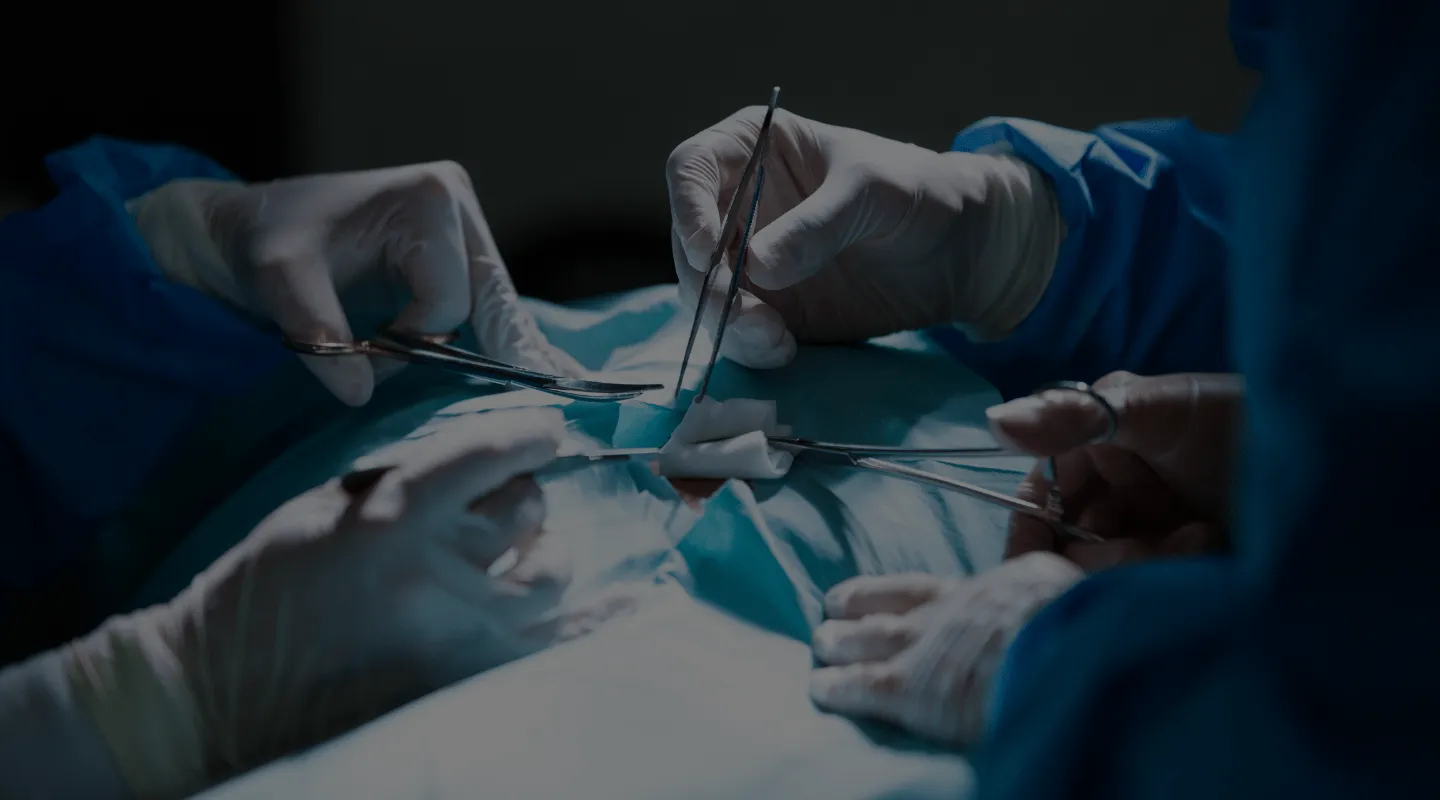
Chest Wall Tumor Surgery
Your Chest Wall Tumor Surgery in Tunisia at Affordable Prices
Opt for a medical stay with Tunisia Destination Santé and benefit from the expertise of our specialist doctors and the best healthcare facilities in Tunisia. Thanks to our tailor-made service, you will benefit from complete support in a secure and comfortable setting.
How does it work?
Chest Wall Tumor Surgery in Tunisia
For addressing chest wall tumors, surgery is one of the best solutions (combined, depending on the case, with chemotherapy or radiotherapy sessions). In Tunisia, a multidisciplinary medical team (oncologists, thoracic surgeons, etc.) is able to manage the surgical operation of a patient with chest wall tumors, in an ultra-modern medical setting. Here’s what you need to know about this procedure: indications, the course of the operation, and post-operative care.
What is Chest Wall Tumor Surgery in Tunisia?
Chest wall tumors are located in the bones or tissues that form the chest wall. These tumors can be benign, i.e., non-cancerous: Osteochondroma, Chondroma, Fibrous dysplasia. They can be malignant, i.e., cancerous, such as Sarcomas. Tumors develop in the rib cage and in nearby tissues, potentially impacting respiratory function. In many patients, chest wall tumors are actually metastases from a cancer originating in another part of the body.
When tumors are benign, complete removal of the chest wall is considered. Parts of the lung may also be resected if there has been tumor metastasis. In the case of malignant tumors, in addition to the removal of the chest wall, chemotherapy or radiotherapy is added to increase the chances of successful treatment. Following removal, the chest wall and adjacent tissues may be reconstructed.
Price of Chest Wall Tumor Surgery in Tunisia
The price of chest wall tumor surgery in Tunisia starts from 2000 Eur. To receive a personalized quote with a price for thoracic tumor surgery, please contact us. Tunisia Destination Santé can offer packages including all medical expenses. TDS can also offer accommodation packages tailored to your budget.
Your health, our priority.
Request your free quote.
Chest Wall Surgery: What You Need to Know Before the Operation
The patient must prepare a complete medical file before being able to benefit from this intervention. Diagnosis is made using medical imaging (a chest X-ray, an MRI, etc.) and a biopsy (a small part of the chest wall is removed and analyzed in a medical laboratory); these tests will determine the location of the tumor, its type and its progression. The patient will also need a health check-up, blood tests, and provide a history of previous operations and current medical treatment, if any. During your meeting with the surgeon, the surgeon will explain the procedures to be followed according to your case, as well as all the details of the operation and its aftermath. You can ask them any questions you may have about this surgery. A meeting with the anesthesiologist should also be scheduled before the operation.
Procedure
This operation is performed under general anesthesia and lasts on average between 2 and 3 hours. It is an open operation, and quite extensive. The surgeon begins by making a long incision to access the rib cartilages and sternum; then, they will perform a complete resection of the chest wall, while performing a partial resection of the lung affected by the tumors (in case of tumor infiltration). For reconstruction, different options can be considered: for example, it is possible to place a flexible prosthetic plate, or to install a titanium or steel bar. You can discuss the different options with your surgeon, who will recommend the best procedure for your situation. The covering and closure of the chest wall is then carried out using a muscle flap. As the operation is extensive, the hospitalization period can last up to 5 to 7 days. In the case where radiotherapy or chemotherapy sessions are considered, the team in charge of your file will inform you of the duration and frequency of the sessions according to your case.
Post-operative care for Chest Wall Surgery
Today, thanks to the development of surgical techniques, chest wall resection gives good results. The patient does not experience great pain, and they can maintain their respiratory functions after the intervention. Even if the risks of complications are low after the intervention, it is important to know them and to discuss them openly with the surgeon before making the decision to have surgery: there are the risks related to the surgical procedure (problems related to anesthesia, healing problems, etc.), and some patients may develop respiratory difficulties or pneumonia after the operation.
Results of Chest Wall Surgery
The final result of the operation will largely depend on the multidisciplinary work carried out by the various specialists who will take care of the patient (the thoracic surgeon, the oncologist, the radiologist, etc.). Long-term post-operative monitoring will be carried out to assess your general health and to check for recurrence.
Our advantages


Contact and Quote Request for Chest Wall Tumor Surgery
If you are considering going to Tunisia for chest wall tumor surgery, you can contact us. Tunisia Destination Santé will assist you with the preparation of your file and the organization of your stay.
Frequently Asked Questions
The size and location of the tumor, its stage, the involvement of surrounding structures, and the patient’s overall health are determining factors. Imaging tests and biopsies help assess operability.
Risks include infection, bleeding, pneumonia, chronic pain, and respiratory complications. Risks can be minimized by meticulous surgical planning and appropriate postoperative care.
Reconstruction may involve the use of metal plates, synthetic meshes, or bone grafts to stabilize the chest wall and maintain respiratory function.
Signs include new chest pain, breathing difficulties, a palpable mass, or abnormalities detected by imaging. Regular follow-up with clinical examinations and scans is crucial.
Tumors can be benign or malignant, including sarcomas, chondrosarcomas, osteosarcomas, and metastatic tumors from other organs.
The impact depends on the extent of resection and reconstruction. Extensive resection may reduce lung capacity, but respiratory rehabilitation techniques can help recover function.
Advances include minimally invasive techniques such as video-assisted thoracoscopic surgery (VATS), the use of biocompatible materials for reconstruction, and improvements in preoperative imaging.
These therapies can be used to reduce tumor size before surgery or to eliminate residual cells after surgery, thus increasing the chances of cure.
Optimal preparation includes smoking cessation, improving physical condition, managing comorbidities, and discussing with the medical team to understand expectations and risks.
Challenges include preserving thoracic structure and function, managing postoperative pain, and the complexity of reconstruction. The surgeon’s expertise and a multidisciplinary team are essential to overcome these challenges.
